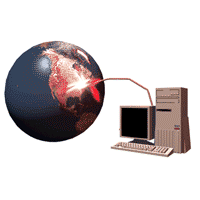Sponsored by BoysStuff.co.uk


For many business owners, computer hardware is something shrouded in mystery. They know they need it, but they aren’t really sure what they’re getting when they buy it.
According to a recent article on alibaba.com, this lack of understanding causes many businesses – especially small to medium enterprises - to buy more than what they need. Overbuying causes more problems than you might think. Fortunately, it is easily avoided by gaining a basic understanding of your computer hardware needs and shopping more wisely.
Understanding How Much Computer Power You Need
One of the biggest dangers in overbuying is, obviously, that you are overspending. Do you need the Intel Core 2 Duo P9600 chip, or can you manage with the P8400? Is 2 GB of RAM enough or do you need 4GB? Can you buy a machine with less installed memory and an expansion slot for future upgrades? Are there other features you can live without for now and add on later?
These are all questions you should be asking yourself before you buy any equipment. Take a long hard look at the specs on a machine, and try to gauge whether you really need them. A huge hard drive on a desktop might seem like a good idea, but if you have a network, do you really need it?
If you are uncertain how to read specs, do some research. There are some excellent guides to buying computer hardware, and also some very good glossaries that explain what all those acronyms mean. Some glossaries can be very technical, but about.com has one that informs without confusing.
Why Buy Hardware That Will Be Obsolete in Two Years?
As the alibaba.com article notes, obsolescence is another pitfall of overbuying. The hardware life cycle is two years or less. In other words, the manufacturer you buy from today will have a fancy new machine available within two years, if not sooner. Some experts even peg the hardware turnover cycle at 9-12 months.
Buying the latest and greatest often means you will lay out a lot of cash for features you don’t really need that may be obsolete within months. Matt Siegel of Little Tree Networks was quoted in the alibaba article as saying that most new small and medium businesses spend two to three times what they need to on hardware and software. He suggests buying off-lease or refurbished PCs to save money.
Indeed, there are vendors out there who work directly with manufacturers and large companies to secure inventories of off-lease and refurbished computer hardware. IBM, Lenovo, and Toshiba are just a few of the companies that have such an arrangement. These “older” machines are a fraction of the price of new ones, and have specs that meet or often exceed the needs of most small businesses.
Resellers also offer components so businesses that buy older equipment can continue to upgrade it and service it, even when parts aren’t available on the “primary” computer market.
When it comes to computer hardware, overbuying is a costly mistake. To avoid falling into the trap of obtaining too much computing power, do your research, understand your needs and shop smartly on the used computer market

| © RIYAN Productions |

